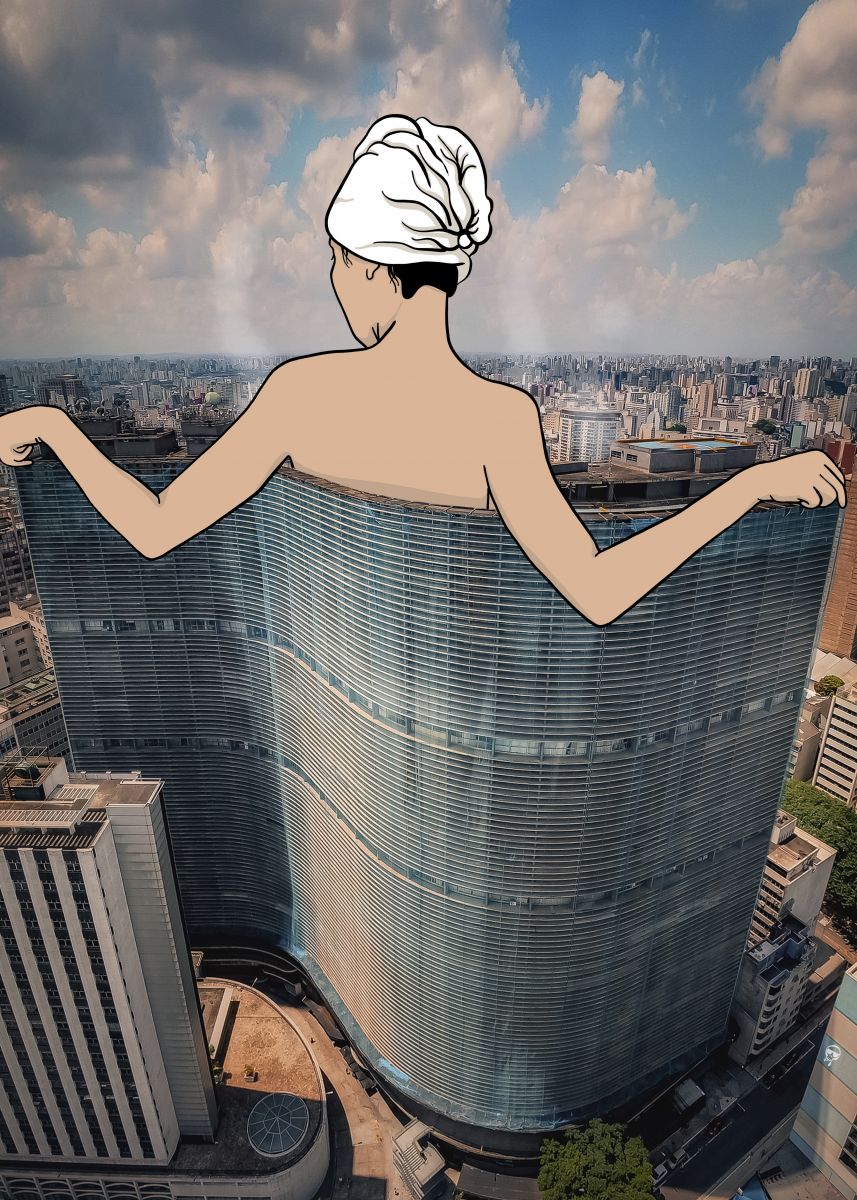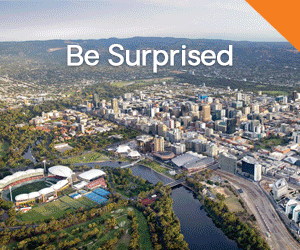São Paulo: To Lead and not to be Led!

Visit São Paulo directly promotes tourism in the destination, both by attracting and supporting major events and micro and medium-sized meetings, which generate wealth, jobs and business for both large companies and local businesses. But for this Brazilian juggernaut, it all starts with the MICE business. Thus, the development of the other segments ends up passing through MICE and evolving in a unified or independent way.
 The main financial and corporate centre in Latin America, São Paulo is the most populous city in Brazil, the American continent, the Portuguese speaking world and the entire southern hemisphere, and the fifth most populous in the world, with a metropolitan area of around 21 million inhabitants. As such, it is also Brazil’s economic engine, responsible for around 10% of the country’s GDP, and a major base for multinational offices, as well as hosting the country’s main events, be they leisure, entertainment, business events or MICE.
The main financial and corporate centre in Latin America, São Paulo is the most populous city in Brazil, the American continent, the Portuguese speaking world and the entire southern hemisphere, and the fifth most populous in the world, with a metropolitan area of around 21 million inhabitants. As such, it is also Brazil’s economic engine, responsible for around 10% of the country’s GDP, and a major base for multinational offices, as well as hosting the country’s main events, be they leisure, entertainment, business events or MICE.
Visit São Paulo is a brand of the 25 de Janeiro Foundation, which also runs the São Paulo Convention & Visitors Bureau. It is a nonprofit organisation, maintained by the private sector, which aims to boost the economy by attracting national and international events, training professionals and promoting the destination. The city of São Paulo has successfully hosted many important events in different sectors, such as the RD SUMMIT 2023, the largest marketing, sales and innovation event in Latin America with 20,000 visitors. For 2024, the goal is to increase this number outside of the fixed calendar for the coming years, prospecting 50 national and international biddings. The destination is a powerhouse when it comes to entertainment, sports, corporate and academic events. São Paulo stands out in the areas of finance, health, education, agribusiness and engineering.
With the COVID-19 pandemic, the city has faced the same challenges as the world’s major capitals, leading to a halt in the events and travel market to make way for the fight against the disease, especially in terms of prevention. According to pre-pandemic data, the sector was responsible for attracting around seven million tourists a year and the recovery, which began in 2021, has brought both lessons learned and the after-effects of the crisis. Lessons, because if the format of trade shows and congresses had been undergoing a digital transformation, the years 2020 and 2021 accelerated the process, introducing technologies in full, such as hybrid participation and the metaverse, which are still present today; after-eff ects, since a whole fi nancial issue remained unresolved. After all, there were practically two years of zero activity, including cancellations and refunds.
 “In Brazil, thanks to the hard work of entities and associations that represent many companies in different sectors, various measures were taken to make the recovery sustainable, so that commitments could be met and new business generated. São Paulo has followed and strengthened this movement, and today has a busy calendar of events, high economic fl ow, hotels with high occupancy rates and event spaces with a busy agenda,” says Toni Sando, Executive President of the São Paulo Convention & Visitor Bureau (pictured above). “In this megalopolis, half of the 15 million annual visitors are motivated by business and events, with the capacity to expand due to its large structure of accommodation facilities, convention centres, exhibition pavilions, transport, road access and, above all, three well-located airports with national and international fl ights. “São Paulo is in a privileged position for tourism, events and travel. As mentioned above, there is a busy calendar of events, whether for entertainment and leisure, with major festivals such as The Town, Primavera Sound, Lollapalooza, Formula 1, Carnival and Street Carnival, LGBTQIA+ Pride Parade, or for business, congresses, symposia and conventions.”
“In Brazil, thanks to the hard work of entities and associations that represent many companies in different sectors, various measures were taken to make the recovery sustainable, so that commitments could be met and new business generated. São Paulo has followed and strengthened this movement, and today has a busy calendar of events, high economic fl ow, hotels with high occupancy rates and event spaces with a busy agenda,” says Toni Sando, Executive President of the São Paulo Convention & Visitor Bureau (pictured above). “In this megalopolis, half of the 15 million annual visitors are motivated by business and events, with the capacity to expand due to its large structure of accommodation facilities, convention centres, exhibition pavilions, transport, road access and, above all, three well-located airports with national and international fl ights. “São Paulo is in a privileged position for tourism, events and travel. As mentioned above, there is a busy calendar of events, whether for entertainment and leisure, with major festivals such as The Town, Primavera Sound, Lollapalooza, Formula 1, Carnival and Street Carnival, LGBTQIA+ Pride Parade, or for business, congresses, symposia and conventions.”
In addition, there is a wide range of cultural, artistic and gastronomic activities to choose from, with restaurants run by world-renowned chefs, museums with outstanding exhibitions, shopping malls, iconic shopping streets, nightlife, historic and modern architecture, etc. As far as the state of São Paulo is concerned, there are other variants of ecotourism, adventure, religious, health and beach tourism, among others, for complementary incentives to major events. “This way, when the communication strategy is prepared, it is possible to segment the public and unify the visitor’s experience, who may come motivated by one theme, but end up enjoying others.” The competition between destinations to attract events includes various factors for the committee’s decisionmaking, such as location, language, currency, infrastructure, price, public support, sponsors, the event’s market, and, according to Toni, tourism policy changes from destination to destination: “We need to understand the need for each prospective event to liaise with interested agents when making its proposal, and for the public authorities to do their part in supporting the attraction of the event.”
Diversity is one of São Paulo’s main assets as a plural, multicultural and global destination, and its hospitality stems from this combination. “São Paulo is home to diverse cultures and styles, the result of its history whose essential chapters for Brazil were written by diff erent people. This diversity is represented by the diff erent types of cuisine, religions, cultures, neighbourhoods, as well as multinationals from all over the world,” recaps Sando. The path to becoming a Smart City is being taken by all cities that wish to remain relevant in the events and travel sectors. “In this regard, Visit São Paulo has innovated by implementing Lina on its website, an AI virtual travel agent to help users with all their questions and needs related to São Paulo. She is constantly being updated to provide information on tourism in the city and help you plan an all-round good trip,” adds Sando. Environmental, Social, and Governance rating is also a key element for sustainable tourism, keeping the destination viable all year round, with a smart way to organise modern events, accessible tourist attractions and respect for the surrounding environment. “We see facilities such as hotels and convention centres taking legal and certifi ed routes to green sustainability. In the case of Visit São Paulo, travellers are compensated through the purchase of carbon credits, as well as compensation for proprietary events.”
São Paulo’s main vocation is MICE, which is essential for the sector’s prosperity. However, other sectors have great potential for boosting the economy through tourism, whether with MICE travellers or visitors with other motivations. For decades, Visit São Paulo has been feeding an intellectual event agenda, which, together with reports from sectorial organisations, such as accommodation providers and airlines, public authorities at municipal, state and federal levels, makes it possible to carry out a predictive study of trends, as well as being decision-making material for executives in the tourism and events sector. “It is possible to predict trends, as well as generate business for companies and professionals who use the data for information and knowledge management,” concludes the bureau’s head.
Events in the pipeline:
- XV International Congress of Uro-Oncology 2024
- International Society for Quality in Health Care Conference 2025
- IWA World Water Congress 2030
Other Articles
About Us
Supported by the Union of International Associations (UIA), the International Association of Professional Congress Organisers (IAPCO) and the Interel Group, the global public affairs and association management consultancy, Headquarters Magazines serve the needs of international associations organising worldwide congresses.














